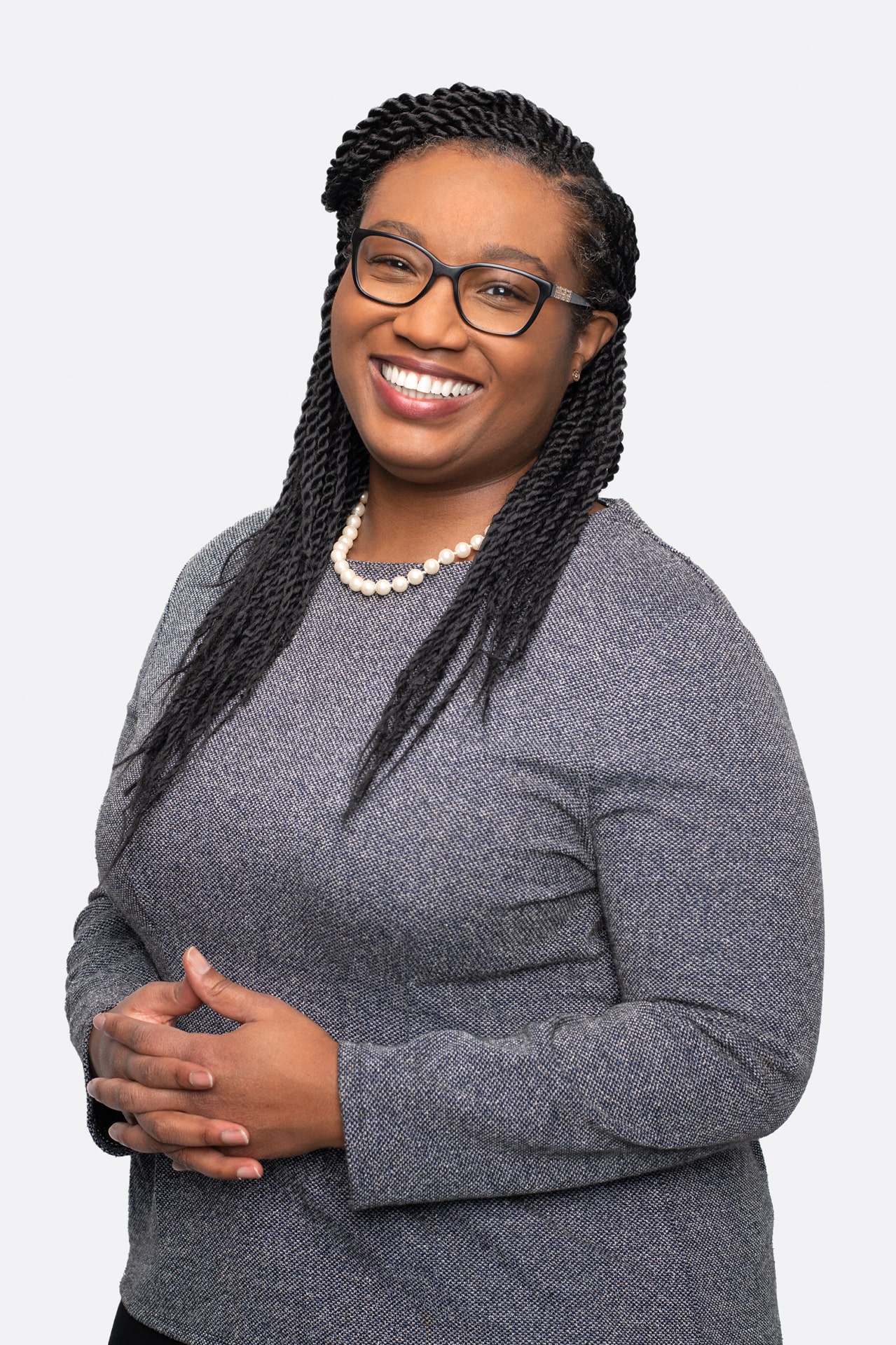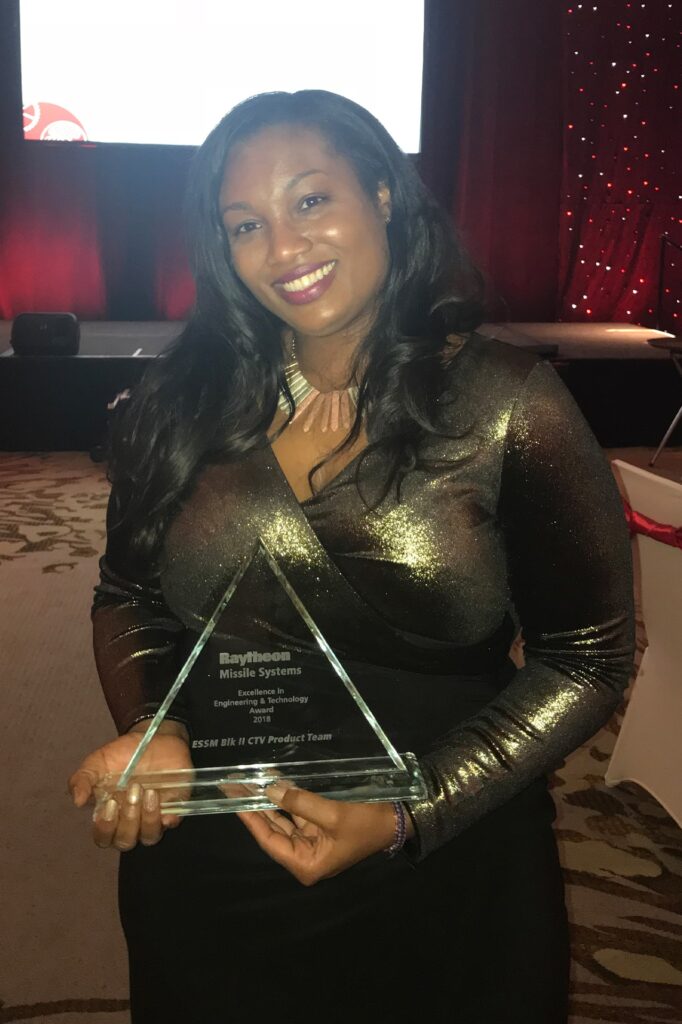
Nina
Hickland
Senior Engineering and Operations Leader, Aerospace & Defense
When Nina Hickland was 10 years old, her mother went to the store one day, leaving Nina’s older sister in charge and Nina alone with the family’s brand-new computer. This was a little like leaving the cat in charge of the catnip. From a young age, Nina had been fascinated by electronics. She was the kind of child who, when asked what she wanted for her birthday, answered, “an electronics kit.” Above all, she was curious about how things worked.
Nina’s mother returned from the store to find her new computer disassembled and laid out on the dining room table: Nina had just wanted to know how it worked. When you grow up in a neighborhood on the south side of Chicago that Nina describes as “pretty challenging,” there’s not a lot extra money to throw at buying replacement computers. To get this one had taken Nina’s mother some time and considerable savings.
Nina took one look at her mother’s face and asked, “Am I in trouble?”
“Well.” Her mother paused. “Not if you can put it back together again.”
Today, Nina enjoys visiting schools in neighborhoods like the one where she grew up and telling students, “I am probably not what you picture when you think about an electrical engineer.” She is young, Black, and female. She knows what it’s like to walk into a room and be the only person there who is young or Black or female—not to mention all three. She volunteers to tell her story in schools precisely so more girls and minorities will picture themselves in STEM careers like hers.
Nina certainly did not know any engineers growing up. Both of her parents were blue collar workers. Yet they instilled in all four of their daughters a belief that they could be and do anything, provided they studied. That meant Nina and her sisters took school seriously. But so did her parents. While Nina and her sisters were growing up, their mother went back to school alongside them. She hadn’t finished college before they were born, but as they grew, she earned an associate degree, then a bachelor’s degree, then a master’s, and finally a Ph.D. in adult education.

Still, when it was time for Nina to go off to college, a four-year program was out of reach for the family financially. Nina planned to join the Navy and enter their nuclear engineering program. Then, out of the blue, Southern Illinois University called and offered Nina a full scholarship to study electrical engineering with them. She was off to Carbondale.
Nina’s dream was happening, but it still wasn’t easy. In her electrical circuits class freshman year, the final project was a team collaboration. When the groups had finished organizing into teams, one student stood alone: No one had asked the Black girl to join them. Nina told the teaching assistant, “It’s OK. I can do this on my own.” She completed the project solo and turned in her write-up along with all the other teams. Sometime later, the TA returned with the graded lab reports. “I’m really disappointed with the caliber of these,” he told the class. “Only one team did a great job: Nina.” He handed out copies of her report so everyone could see what quality work looked like.
“After that,” she laughs, “guys were rushing up and asking me to be in their group. They turned out to be great people, really. They just needed to realize I was as nerdy as they were, building a computer in my dorm room.” To this day, some of them remain her friends. “I just think it’s human nature to gravitate toward people who look like you,” she says. “And I didn’t look like any of them.”
The bigger lesson she took away, though, was that she could excel as an engineer on her own—that she had the right stuff.
After graduation, companies agreed and came calling. Aviation and defense contractors had teams and wanted Nina on them. Nina joined Raytheon out of college, on a career track that would ultimately lead to leadership roles in defense and aerospace engineering. Along the way, though, she had to learn how to stand up for her ideas in mostly male work environments.
“In college, no one teaches you how to hold your own in a technical debate,” she says. “I’m an introvert. I had to get over that to excel.” It was other women who showed her how. “The first woman manager I had took me aside after I sat in meetings, not speaking, and said, ‘You are as smart as anyone in the room, Nina. You cannot be afraid to speak up,’” she says. “I learned a lot from her. If someone tried to talk over her in a meeting, she would cut them off and say, ‘Excuse me, I’m not finished.’ I was like, ‘Holy crap.’ But she got heard.”
This is what Nina wants the girls and other students to hear when she shares her story of becoming an engineer. She would be happy to see more women follow in her footsteps.
“I think the perspective women bring to a team is unique,” says Nina. “It seems like there are lots more ‘aha’ moments when women have a seat at the table and feel comfortable sharing their perspective. That’s why I reach back to help others find their way.”
In addition, she leans on the network of female friends she built over the years when the going gets tough. “I’m fortunate in that I have a small circle of women that I can call, that keeps me encouraged,” she says. “Having a support system of women is really important.”Today, following in her mother’s footsteps, Nina is back in school. She is earning her MBA at the Kellogg School of Management at Northwestern University. “I’ve had a lot of great mentors along the way,” she says. “So now I try to mentor others. That’s why I say to girls, ‘Dream big.’ Even if you feel like an outsider. Even if no one at the table looks like you. Have confidence. Because the sky is the limit. You can be who you want. Have goals. And once you reach them… what else will you do in life?”